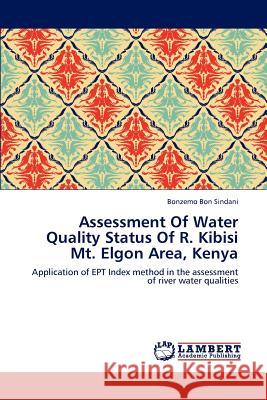Assessment Of Water Quality Status Of R. Kibisi Mt. Elgon Area, Kenya » książka
Assessment Of Water Quality Status Of R. Kibisi Mt. Elgon Area, Kenya
ISBN-13: 9783847321361 / Angielski / Miękka / 2012 / 128 str.
The term water quality is applied universally to refer to the water that meets the universal standards set for legitimate and vital water use at any scale i.e. local, regional and international levels. The evolution of the term water quality has been due to the expansion of water requirements and ability to measure and interpret water characteristics. The definition of water quality depends on the factors that determine it, and other variables that affect the nature of water resource. Pollution and degradation of water quality interferes with legitimate and vital water use at any scale i.e. local, regional and international levels. However, water quality standards have been established for regulatory purposes and are determined from judgment on the criteria involved in the standards dependent on domestic, agricultural, industrial and life in aquatic systems. River water quality status is generally affected by many physical, chemical and biological parameters introduced by natural forces and human (anthropogenic) activities. Water quality criteria, standards and related legislation are often used as the main administrative means to manage water resource.











